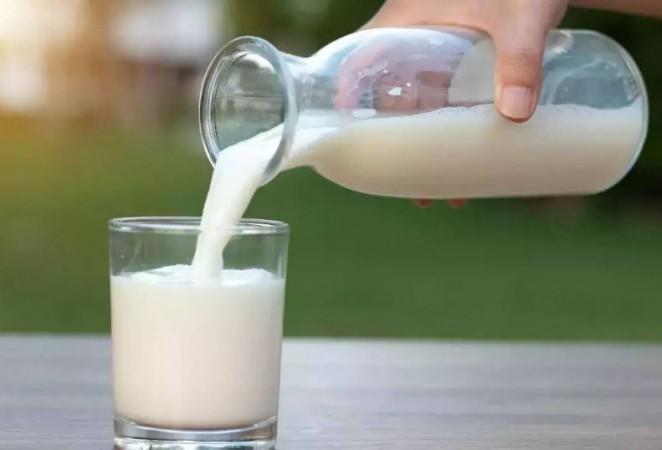
In order to maintain a healthy body, it is essential to consume nutrients that nourish us. Deficiency in essential nutrients can lead to various health issues, with symptoms manifesting in our bodies. Today, let's discuss the repercussions of calcium deficiency in the body. While many people associate calcium deficiency solely with bone pain, it's crucial to understand that calcium serves various functions in the body. Its deficiency can lead to not only weakened bones but also several other health problems, making it imperative to include calcium-rich foods like milk in our diets.
Recognizing Early Signs of Calcium Deficiency
Weakness in Bones and the Risk of Osteoporosis:
Calcium deficiency weakens bones, leading to conditions like osteoporosis characterized by reduced bone density and increased susceptibility to fractures. Osteoporosis often remains asymptomatic until a fracture occurs, emphasizing the importance of preventive measures such as adequate calcium intake.
Effects on Teeth and Hair:
Calcium is essential for maintaining dental health, contributing to the structure and strength of teeth and gums. Insufficient calcium levels may lead to dental problems like tooth decay, weakened enamel, and gum disease. Similarly, hair health can be compromised due to calcium deficiency, resulting in dryness, brittleness, and increased susceptibility to breakage.
Digestive Issues:
Calcium plays a role in regulating muscle contractions, including those involved in digestive processes. Consequently, low calcium levels may contribute to digestive issues such as constipation and bloating. Adequate calcium intake supports smooth muscle function, aiding in optimal digestion and regular bowel movements.
Fatigue, Weakness, and Muscle Pain:
Calcium is essential for muscle contraction and relaxation, as well as nerve impulse transmission. Therefore, inadequate calcium levels can lead to muscle weakness, fatigue, and cramping. Chronic muscle pain, particularly in the back, legs, and joints, may indicate calcium deficiency and should prompt further evaluation.
Choosing the Right Foods
Incorporating calcium-rich foods into your daily diet is essential for preventing and addressing calcium deficiency. While dairy products like milk, yogurt, and cheese are well-known sources of calcium, several other food sources can contribute to your calcium intake:
Dairy Products:
Dairy products are among the richest sources of dietary calcium, providing readily absorbable calcium along with other essential nutrients like protein, vitamin D, and phosphorus. Opt for low-fat or non-fat dairy options to minimize saturated fat intake while maximizing calcium intake.
Leafy Greens:
Dark, leafy greens such as kale, spinach, collard greens, and broccoli are excellent plant-based sources of calcium. While the calcium content in these foods may be lower compared to dairy products, they offer additional health benefits, including fiber, vitamins, and antioxidants.
Fortified Foods:
Many food products, including plant-based milk alternatives, orange juice, and breakfast cereals, are fortified with calcium to enhance their nutritional value. Check product labels to identify fortified options and incorporate them into your diet as part of a balanced meal plan.
Nuts and Seeds:
Certain nuts and seeds, such as almonds, sesame seeds, and chia seeds, contain significant amounts of calcium. Including these nutrient-dense foods in your diet can contribute to your overall calcium intake while providing essential fats, protein, and fiber.
Fish with Edible Bones:
Some types of fish, such as canned salmon and sardines, are consumed with their bones intact, providing an additional source of calcium. Incorporating these fish varieties into your diet can diversify your calcium sources and add flavor and texture to your meals.
In conclusion, prioritizing calcium-rich foods in your daily diet is essential for maintaining optimal health and preventing calcium deficiency-related complications. By incorporating a variety of calcium sources into your meals and snacks, you can ensure adequate calcium intake to support bone, dental, and overall physiological health.
Drinking too much water is also dangerous, it can cost your life, be careful
Do you also make this mistake while eating cucumber? Instead of benefit, there will be loss
Radish reduces the risk of cancer and diabetes, know its 5 tremendous benefits